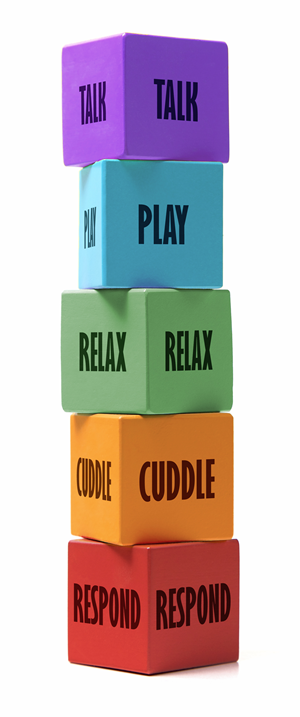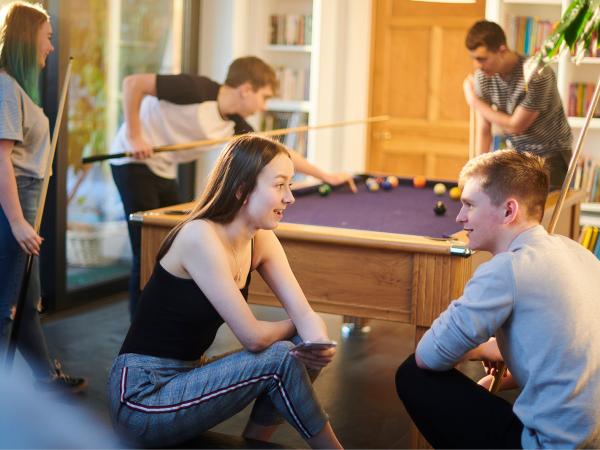My Mental Health
Mental Health is all about how you feel about yourself emotionally & socially. Do things that are good for you The Children's Society produced a Mental health and wellbeing A-Z
If you are under 18 and live in Leicestershire, Leicester or Rutland did you know you can access information to explain why you may be struggling with you mental health & refer yourself
Find out more HERE

its important to remember you have rights for your mental health: Mind
Why am I feeling like this?
Throughout life you may have many ups and downs. This is perfectly normal and part of everyday life. However sometimes you may need some support to help with your feelings. There are many different places you may turn for support when you are in a time of need.
The Tellmi website for young people aged 11+ and is an excellent place to start that is filled with lots of friendly advice. The space is fully anonymous where you can chat to people your own age or access professional support . Counsellors are available 365 days a year tellmi
You could also contact the Teen health service for support. Either in school if you feel you want to talk to somebody in person or via their website with has lots of hints and tips about wellbeing. Teen Health
Coping with Life
This section is for advice around abuse, body issues, bullying, relationships and friendships.
The Young Minds website is a brilliant resource, this link will take you directly to the coping with life section: Young Minds
The Tellmi website for young people aged 11+ and is an excellent place to start that is filled with lots of friendly advice. The space is fully anonymous where you can chat to people your own age or access professional support . Counsellors are available 365 days a year tellmi
If you need support on issues of self harm and suicide prevention, but don't feel ready to talk to with someone in person check out the Harmless website: Harmless
Healthy Relationships
A healthy relationship is one that makes you feel happy, respected and cared about. You should feel you can trust the other person and you share responsibility about the way you communicate with each other. All relationships have their ups and downs which is normal, but it is how you both navigate your way through your relationship. You should feel that you both want the same things but also feel comfortable to talk about things when you feel unhappy.
Health and Wellbeing Officers : Teen Health service
Autism and mental health
If you are Autistic & need help with your mental health its import that you get the right support. If you live in Leicestershire, Leicester or Rutland ChatAutism, is a safe confidential space for you to seek help & advice

Or you can Text 07312 277097 or you can start a chat with a Health Care professional here : start a chat here
The Little Book of Relationship Care
The Little Book of Relationship Care is also available as a hard copy and can be found in our family hubs
Feeling Safe
It is your right to feel safe all the time be that at home, at school or just in general day today life. Sometimes the places we expect to feel safe don’t make us feel OK. Free online support is available.
If you feel like you need a safe space to speak you can contact the Samaritans
Mental health support can be found here with a 24 hour helpline: NHS
Find your nearest mental health cafe: Neighbourhood Cafes
At school you should have the opportunity to talk to your teen health adviser or a member of the pastoral team. To find out about the teen health service in your school, check out their website: Teen Health
What is Domestic abuse? : YouTube
What is Coercive control? : YouTube
Supporting a friend or family member
Sometimes those around us may come to us for support. Whilst we want to be there for them, it may be hard to know what advice to give them. Here are some links which may be useful to direct them to, to help them out
Bereavement: Winston's Wish Cruse
Bereavement following suicide: Bereavement by Suicide
Domestic violence and abuse support: Helpline & Services – Important Updates – FreeVA Support
Domestic Abuse support for Young People : The YP project
Relationship and counselling support : Relate
Further information
Tips to cope with anxiety using Five to Thrive
The Five to Thrive approach can help you if you are experiencing anxiety or other mental health challenges. The five simple building blocks can support you to feel calmer, more connected, and more able to cope with stress.
1. RESPOND
- Tune in to yourself. Notice when you feel anxious and acknowledge it instead of ignoring it.
- Ask for help. Choose a trusted adult, Counsellor, or friend you can talk to when things feel overwhelming.
- Self-respond. Practice self-compassion and affirmations: “This is hard, but I’m doing my best.”
✅ Try this:
- Keep a small journal to note what triggers your anxiety and what helps you feel better.
- Tell someone: “I feel anxious, and I need some help.”
2. ENGAGE
- Stay connected to people who care about you, even if you want to withdraw.
- Choose activities or hobbies you enjoy—connection helps balance anxiety.
✅ Try this:
- Spend time with a pet, a family member, or a friend who makes you feel safe.
- Join a group, club, or online community about something you love (gaming, art, sports).
3. RELAX
- Learning to calm your body is essential to reduce anxiety.
- Practice breathing, mindfulness, or other relaxation tools regularly.
✅ Try this:
- Box breathing: Inhale 4 counts, hold 4 counts, exhale 4 counts, hold 4 counts, repeat.
- Listen to calming music or try a guided relaxation app (like Headspace or Calm).
- Make a “calm kit”—fidget toys, comforting smells, or photos that help you feel safe.
4. PLAY
- Play isn’t just for little kids—doing enjoyable things balances stress hormones and builds resilience.
- Find moments to have fun, be creative, or move your body without pressure.
✅ Try this:
- Art, music, gaming, dance, or any hobby that helps you switch off anxiety for a while.
- Even silly humor (funny videos, memes) helps lighten anxious thoughts.
5. TALK
- Putting words to how you feel helps your brain process and release anxiety.
- Talking to someone you trust makes you feel less alone.
✅ Try this:
- Share with a Counsellor or teacher: “I’m feeling anxious a lot, and I’d like help.”
- Write down thoughts in a journal and read them out loud to yourself.
Remember to take care of yourself - you are loved and cared about



